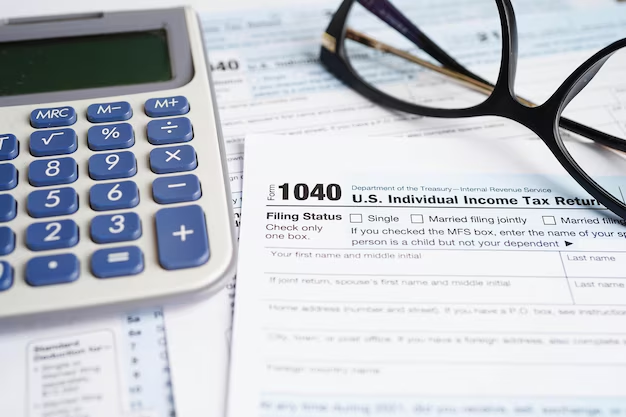Is There a State Income Tax in Tennessee? Discover the Details You Need to Know!
For many residents and potential newcomers to Tennessee, understanding the state's tax landscape is crucial. Taxes impact everything from household budgeting to long-term financial planning, and knowing whether a state imposes an income tax can significantly influence life decisions. So, does the state of Tennessee have a state income tax? Let's dive into this topic and explore the ins and outs of Tennessee’s tax framework.
Tennessee's Tax Framework: A Quick Overview
Before diving into specifics, it's essential to grasp how Tennessee's tax system is structured. Tennessee is known for its favorable tax climate, particularly due to the absence of a broad-based state income tax. But there’s more to the story:
- No Traditional State Income Tax: Tennessee does not impose a tax on wages and salaries. This makes it attractive to freelancers, business owners, and anyone with substantial wage income considering relocation.
- Hall Income Tax: Until recently, Tennessee levied a tax on income from stocks and bonds, known as the Hall Income Tax. However, this gradually phased out and was eliminated entirely as of January 1, 2021.
The absence of a traditional state income tax positions Tennessee as a tax-friendly state, but how does this shape other tax policies?
Sales Tax: The Backbone of Revenue
Since Tennessee eschews a conventional income tax, the state generates significant revenue through its sales tax system, which is among the highest in the United States:
- State Sales Tax Rate: Tennessee's state-level sales tax is 7%.
- Local Sales Taxes: Additional local sales taxes generally range from 1.5% to 2.75%, leading to a combined rate that reaches up to 9.75% in some areas.
These high sales tax rates can offset the absence of an income tax for certain residents, particularly those with high consumption levels. Additionally, taxing consumption rather than income can attract wealthier residents who prefer a tax structure that emphasizes spending over earning.
Property Taxes: Here's the Balance
You might wonder whether the lack of an income tax translates into higher property taxes. Thankfully, Tennessee maintains relatively reasonable property tax rates:
- Average Property Tax Rate: The effective property tax rate in Tennessee is approximately 0.64%, below the national average.
Tennessee's system allows municipalities to set their own rates, so property taxes may vary significantly across different communities, giving potential homeowners plenty of options based on how they value housing costs versus other living expenses.
The Economic Impact: Perception vs. Reality
The absence of a state income tax in Tennessee doesn't just impact current residents—it also influences business decisions and population trends:
Migration and Population Growth
- A Magnet for Relocation: The absence of a state income tax entices many individuals and families seeking lower tax burdens. Retirees, in particular, find Tennessee appealing due to favorable conditions for pension income.
- Business Environment: Companies looking to attract top talent often find Tennessee an easier sell due to these tax advantages. This, in turn, supports job growth and economic diversification.
Balanced Budgeting
- Despite forgoing a significant revenue stream from personal income taxes, Tennessee maintains a balanced budget, leveraging sales taxes, business taxes, and tourism-driven revenue to stay solvent.
Financial Planning: What You Need to Know
If you reside in Tennessee or are considering a move, understanding the wider financial implications is important:
Budgeting Considerations
- Higher Sales Tax: Be aware of less disposable income after purchases due to higher sales tax rates. Strategic budgeting can help mitigate these effects.
- Property Tax Assessment: With property taxes lower relative to many other states, investing in real estate could be comparably advantageous.
Retirement Planning
- Favorable for Retirees: The absence of a state income tax exempts all forms of retirement income, whether pensions, IRAs, or 401(k) withdrawals, from state taxation. Consider how this factor might weigh against other cost-of-living factors.
Key Takeaways: Simplifying Tennessee's Tax Landscape
It's straightforward to get lost in the details, so here are the key takeaways in a simple list:
- 💼 No State Income Tax: Enjoy tax-free wage and salary income, providing a boost to your take-home pay.
- 💸 High Sales Tax: Be prepared for higher sales taxes that could impact budgeting decisions.
- 🏡 Moderate Property Taxes: Benefit from competitive property taxes that can make home ownership in Tennessee more affordable relative to income-tax states.
- 🎉 Great for Retirees: No taxation on retirement income makes Tennessee an attractive option for retirees.
Related Considerations in the Broad Tax Landscape
While understanding state taxes are vital, it's just one facet of financial planning. Here are a few related topics worth exploring:
Federal Income Tax Implications
- Tennessee residents are subject to federal income tax, and understanding how federal taxes interplay with state rules is crucial for optimizing deductions and credits.
Planning Across State Lines
- If you have income from or frequently travel to states with an income tax, understanding reciprocal agreements or cross-state tax obligations will keep you in the clear.
Financial Services and Guidance
- While this guide provides a solid overview, seeking advice from tax professionals can help navigate complex or evolving tax scenarios.
Tennessee's unique tax characteristics provide an appealing landscape for current and potential residents, influencing everything from daily expenses to long-term financial strategies. Using this guide, you can make informed decisions that integrate seamlessly with your personal financial goals. With taxes being a perennial topic of interest, staying proactive ensures your financial well-being amid changing landscapes.

Related Topics
- Am I Tax Exempt
- Are 401k Contributions Tax Deductible
- Are 529 Plan Contributions Tax Deductible
- Are Attorney Fees Tax Deductible
- Are Campaign Contributions Tax Deductible
- Are Charitable Donations Tax Deductible
- Are Church Donations Tax Deductible
- Are Churches Tax Exempt
- Are Closing Costs Tax Deductible
- Are Contributions To 529 Plans Tax Deductible
